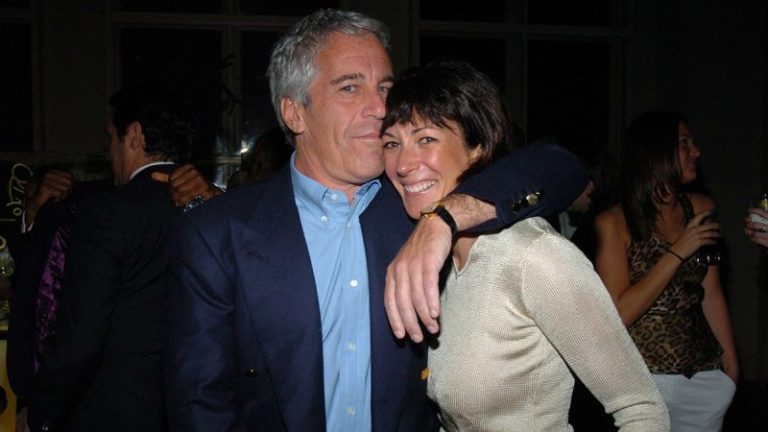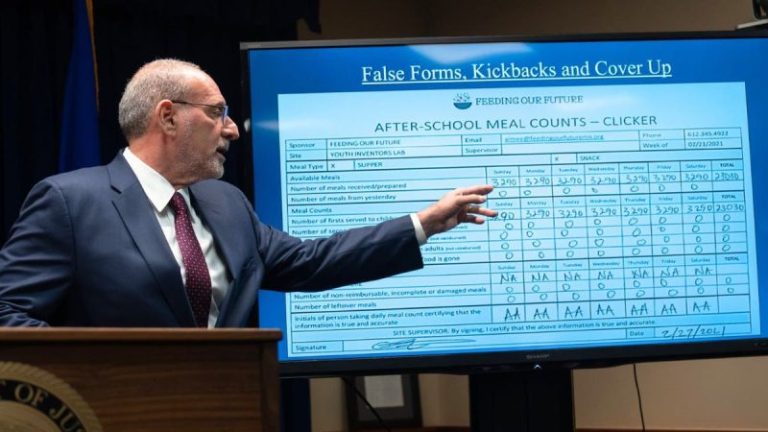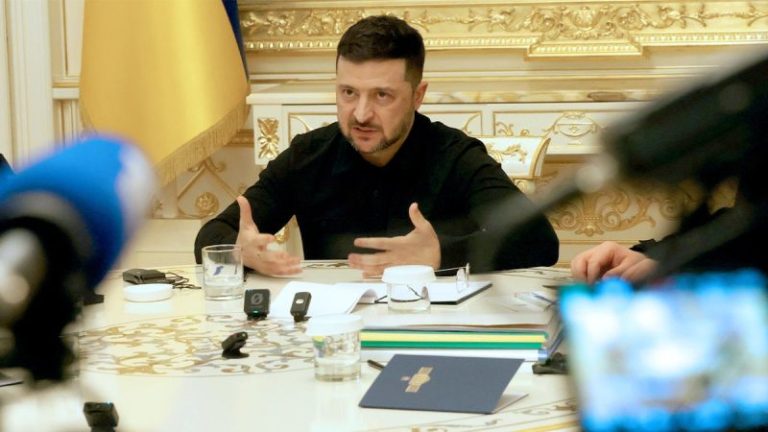Skyharbour Resources Ltd. (TSX-V: SYH ) (OTCQX: SYHBF ) (Frankfurt: SC1P ) (‘Skyharbour’, ‘SYH’ or the ‘Company’) is pleased to announce the closing of the definitive repurchase agreement (the ‘Strategic Agreement’) with Denison Mines Corp. (‘Denison’ or ‘DML’), whereby Denison has acquired an initial project interest in Skyharbour’s Russell Lake Uranium Project (‘Russell’ or the ‘Project’) and the parties have entered into four separate joint venture agreements on various claims making up Russell (the ‘Transaction’). The Project is strategically located in the central portion of the Eastern Athabasca Basin of northern Saskatchewan, with access to regional infrastructure, including an exploration camp, all-weather road and powerline.
Russell Lake Project Location Map:
http://www.skyharbourltd.com/_resources/images/2025-11-14%20SKY-RussellLake-Updated.jpg
Highlights:
- Strategic Agreement represents combined total project consideration of up to CAD $61.5 million consisting of cash payments to Skyharbour totalling $10.0 million, additional consideration of $8.0 million payable in cash and shares before year end, and expenditures and cash payments totalling up to $43.5 million for Denison to acquire between a 20% and 70% ownership interest over seven years in the claims making up Russell, with Skyharbour owning the remaining interests.
- Denison (TSX: DML; NYSE American: DNN), a leading uranium mining company with a market capitalization of over $3 billion, is developing the Wheeler River Project (‘Wheeler River’), which shares a 55 kilometre border with Russell. Denison is an existing, large corporate shareholder of Skyharbour and now joins the Company as a strategic, active, funding partner at Russell.
- The Project has been divided into four different joint ventures, including Russell Lake (‘RL’), Getty East, Wheeler North, and the Wheeler River Inlier Claims, of which Skyharbour will retain initial ownership interests of 80%, 70%, 51%, and 30%, respectively. Denison can then earn up to a 70% interest in the Wheeler North and Getty East properties through option agreements.
- The geological teams of Denison and Skyharbour have begun working cooperatively to advance and unlock value across the joint ventures, employing top-tier exploration and development expertise in the region.
- Denison has committed to a minimum of $4 million in exploration expenditures over the first two years at Wheeler North and Getty East combined, as well as agreeing to fund to maintain its pro-rata 20% participation interest in the RL claims through 2029 up until such time that total exploration expenditures on the property reach $10 million.
- Skyharbour will remain operator with an 80% ownership interest at the RL claims comprising over 53,192 hectares of the original 73,314 hectare Russell Lake Project. The Company will also act as operator during the first earn-in at Getty East with Denison sole funding the exploration in order to fulfill the earn-in option criteria.
- Skyharbour is well funded going into 2026 with over $11 million in the treasury. The Company will also generate revenue from its operator fee at the McGowan Lake exploration camp at the Project, as well as from cash and share payments from other option earn-in partner companies.
- Skyharbour will continue to directly advance its high-grade Moore Uranium project as well as the RL claims at Russell, while partner companies fund exploration at some of the Company’s other projects.
Reorganization of the Russell Lake Project:
https://www.skyharbourltd.com/_resources/images/Russell-Map-New.jpg
Jordan Trimble, President and CEO of Skyharbour, stated: ‘We are thrilled to close this major transaction for Skyharbour, and to embark on the next chapter of exploration at Russell with a multi-billion dollar strategic partner and large shareholder in Denison Mines. With up to $61.5 million in combined project consideration contemplated, we are confident that this strategic agreement will expedite the discovery process at the Project while minimizing equity dilution for our shareholders. Based on initial technical meetings and strategy sessions with Denison, we are excited about the combined exploration options for the near term. Russell is one of the more prospective exploration projects in the Athabasca Basin proximal to existing and developing mines including Denison’s Pheonix deposit at Wheeler River. Denison will also be able to provide considerable insight and experience as we jointly advance Russell. Lastly, we now enter the new year with a healthy treasury of over $11 million to fund our exploration efforts and corporate activities through 2026 while various partner companies fund exploration at numerous other projects in our portfolio.’
David Cates, President and CEO of Denison, further commented: ‘As Denison nears receipt of final regulatory approvals for the Phoenix In-Situ Recovery mine proposed for our flagship Wheeler River property, we are also making measured investments in our project pipeline – including our next development assets and high-potential exploration properties. Given its proximity to Wheeler River, Denison has had an interest in adding Russell to our property portfolio for much of my nearly two decades with the Company. This transaction achieves that objective by providing Denison with the opportunity to lead and participate in exploration efforts across four newly created joint ventures, which are designed to drive collaboration between Denison and Skyharbour’s technical teams. We are excited to build on our long-standing relationship with Skyharbour and accelerate the evaluation of this exceptional package of highly prospective ground.’
Transaction Details:
The consideration payment consisted of a $10.0 million cash payment, with $2.0 million paid upon execution of the Strategic Agreement and $8.0 million paid upon closing of the Strategic Agreement. An additional $8.0 million is payable in cash and shares by Denison on or before December 31 st , 2025 with a minimum of $2.0 million payable in cash.
It is anticipated that Denison will also be making use of the current exploration camp at McGowan Lake on the Project, which will continue to be operated by Skyharbour, and an administrative fee will be payable by Denison to Skyharbour. The claims comprising Russell are subject to various existing underlying royalties to other parties.
Skyharbour has received conditional approval from the TSX Venture Exchange for closing. The issuance of shares by Denison to Skyharbour remains subject to appliable exchange approvals.
Summary of Initial Joint Ventures:
Upon closing of the Strategic Agreement, Denison has earned an initial project interest in each of the four new Russell exploration projects including a 49% interest in the Wheeler North claims, a 20% interest in the RL claims, a 30% interest in the Getty East claims, and a 70% interest in the Wheeler River Inlier claims.
- Wheeler North (51% SYH, 49% DML ; subject to additional earn-in options ) : The claims marked in yellow in the accompanying map represent 16,409 hectares over eight claims. The claims host some of the exploration targets located proximal to Wheeler River, including the Grayling and Fork Zones. Upon closing of the Transaction, Denison will have the option to increase its interest in Wheeler North to a 70% interest in these claims and Denison will become the operator of Wheeler North as described in more detail below.
- Russell Lake or RL (80% SYH, 20% DML) : The claims marked in pink in the accompanying map represent 53,192 hectares over 16 claims. These claims are located north and west of Skyharbour’s Moore Project and host numerous exploration target areas including Christie Lake, NE Russell, Blue Steel, Taylor Bay, South Russell, and Kowalchuk Lake. In order to maintain its initial interest in RL, Denison has agreed to fund its pro rata share of up to a maximum of C$10.0 million in total project expenditures. Skyharbour will remain operator of RL.
- Wheeler River Inliers (30% SYH, 70% DML) . The claims marked in blue in the accompanying map represent 608 hectares over two claims. These are inlier claims within Denison’s Wheeler River project hosting the West Russell and C-Block exploration target areas. DML will become operator of the Wheeler River Inliers.
- Getty East (70% SYH, 30% DML ; subject to additional earn-in options ) . The claim marked in green in the accompanying map representing 3,105 hectares is host to the Little Man Lake exploration prospect. The claim borders Cameco’s Cree Zimmer property which holds its Key Lake operations to the south. Upon the closing of the Transaction, Skyharbour remains operator of Getty East; however, Denison has the option to become the operator and acquire up to a 70% interest in this joint venture as described in more detail below.
Denison Earn-In Options:
The Earn-In Option Agreements grant Denison an option to earn additional interests in Wheeler North and Getty East.
Wheeler North Earn-In Option :
Under the terms of the Wheeler North Earn-In Option Agreement, Denison may acquire up to a 70% interest in Wheeler North. The option agreement contains two (2) phases, as summarized below:
Phase 1: To earn an additional 11% interest in Wheeler North (increasing Denison’s ownership to 60%), Denison must:
- Incur $10.0 million in exploration expenditures at Wheeler North within 48 months of Closing, of which $2.5 million in exploration expenditures must be completed within 24 months of Closing, and
- Make a cash payment in the amount of $1.5 million to Skyharbour within 48 months of Closing.
Phase 2: To earn an additional 10% interest (increasing Denison’s ownership to 70%) in Wheeler North, Denison must complete the requirements of Phase 1, plus the following:
- Incur an additional $15.0 million in exploration expenditures at Wheeler North within 7 years of Closing, and
- Make a further cash payment in the amount of $2.0 million to Skyharbour within 7 years of Closing.
Getty East Earn-In Option Agreement:
Under the terms of the Getty East Option Agreement, Denison may acquire up to a 70% interest in Getty East. The option agreement contains two (2) phases, as summarized below:
Phase 1: To earn an additional 19% interest in Getty East (increasing Denison’s ownership to 49%), Denison must incur $5.0 million in exploration expenditures at Getty East within 48 months of Closing, of which $1.5 million must be completed within the first 24 months of Closing.
Phase 2: To earn an additional 21% interest in Getty East (increasing Denison’s ownership to 70%), Denison must complete the requirements of Phase 1, plus incur an additional $10 million in exploration expenditures within 7 years of Closing. Upon completion of the Phase 2 earn-in option criteria, Denison will have the option to become the operator in this joint venture.
Russell Lake Uranium Project Overview:
The Russell Lake Project is a large, advanced-stage uranium exploration property totalling 73,314 hectares strategically located between Cameco’s Key Lake and McArthur River Projects, and adjoining Denison’s Wheeler River Project to the west and Skyharbour’s Moore Uranium Project to the east. The northern extension of Highway 914 between Key Lake and McArthur River runs through the western extent of the property and greatly enhances accessibility, while a high-voltage powerline is situated alongside this road.
Skyharbour’s New 80% Owned RL Project:
The claims making up the RL Project constitute over seventy percent of the original Russell project area and will continue to be explored by Skyharbour as the operator and 80% owner. Denison will acquire a 20% interest and has agreed to fund to maintain its pro-rata participation interest in the RL claims through December 31 st , 2029, or until such time that total expenditures on the properties have reached $10 million.
The RL claims have numerous highly prospective targets that Skyharbour will continue to advance. The Christie Lake target area contains basement-hosted uranium mineralization with historical drilling returning 0.17% U 3 O 8 over 0.4 metres at 436.4 metres depth in hole CL-10-03, hosted within a strongly hematized breccia. A prospective clay altered basement fault system runs throughout this area.
The Blue Steel target area comprises graphitic metasediments that were last drilled in 2008. The full extent of the graphitic corridor remains unknown and completely untested. Historical geophysics indicate potential faulting along this corridor, highlighting it as a priority area for follow-up work using modern geophysical methods to refine drill targets.
The Kowalchuk area, situated within the southern Russell claims, is another prospective area on the RL claims, with multiple inferred structural trends passing through it. This area has seen only limited modern geophysical coverage to date.
In addition to the aforementioned target areas, there are many kilometres of untested EM conductors on the RL claims underlain by rocks of low magnetic intensity, suggestive of the presence of prospective graphitic meta-pelitic basement lithologies typical of Athabasca-style uranium systems. With limited modern exploration conducted over the past 12 years, the RL claims remain underexplored and highly prospective for both expanding known mineralized zones and making new discoveries.
Advisors and Counsel:
Haywood Securities Inc. acted as financial advisor to Skyharbour in connection with the Transaction, and AFG Law LLP and DuMoulin Black LLP are acting as legal counsel to Skyharbour.
Qualified Person:
The technical information in this news release has been prepared in accordance with the Canadian regulatory requirements set out in National Instrument 43-101 and reviewed and approved by Serdar Donmez, P.Geo., VP of Exploration for Skyharbour as well as a Qualified Person.
About Skyharbour Resources Ltd.:
Skyharbour holds an extensive portfolio of uranium exploration projects in Canada’s Athabasca Basin and is well positioned to benefit from improving uranium market fundamentals with interest in thirty-seven projects covering over 616,000 hectares (over 1.5 million acres) of land. Skyharbour has acquired from Denison Mines, a large strategic shareholder of the Company, a 100% interest in the Moore Uranium Project, which is located 15 kilometres east of Denison’s Wheeler River project and 39 kilometres south of Cameco’s McArthur River uranium mine. Moore is an advanced-stage uranium exploration property with high-grade uranium mineralization in several zones at the Maverick Corridor. Adjacent to the Moore Project is the Russell Lake Uranium Project, which hosts widespread uranium mineralization in drill intercepts over a large property area with exploration upside potential. The Company is actively advancing these projects through exploration and drilling programs.
Skyharbour also has joint ventures with industry leaders Denison Mines, Orano Canada Inc., Azincourt Energy, and Thunderbird Resources at the Russell, Preston, East Preston, and Hook Lake Projects, respectively. The Company also has several active earn-in option partners, including CSE-listed Basin Uranium Corp. at the Mann Lake Uranium Project; TSX-V listed North Shore Uranium at the Falcon Project; UraEx Resources at the South Dufferin and Bolt Projects; Hatchet Uranium at the Highway Project; CSE-listed Mustang Energy at the 914W Project; and TSX-V listed Terra Clean Energy at the South Falcon East Project.
In aggregate, Skyharbour has now signed earn-in option agreements with partners that total to potentially over $76 million in partner-funded exploration expenditures and over $42 million in cash and share payments coming into Skyharbour, assuming that these partner companies complete their entire earn-ins at the respective projects.
Skyharbour’s goal is to maximize shareholder value through new mineral discoveries, committed long-term partnerships, and the advancement of exploration projects in geopolitically favourable jurisdictions.
Skyharbour’s Uranium Project Map in the Athabasca Basin:
https://skyharbourltd.com/_resources/maps/SKY-SaskProject-Locator-2025-12-08.jpg
To find out more about Skyharbour Resources Ltd. (TSX-V: SYH) visit the Company’s website at www.skyharbourltd.com .
Skyharbour Resources Ltd.
‘Jordan Trimble’
Jordan Trimble
President and CEO
For further information contact myself or:
Nicholas Coltura
Corporate Communications Manager
Skyharbour Resources Ltd.
Telephone: 604-558-5847
Toll Free: 800-567-8181
Facsimile: 604-687-3119
Email: info@skyharbourltd.com
NEITHER THE TSX VENTURE EXCHANGE NOR ITS REGULATION SERVICES PROVIDER ACCEPTS RESPONSIBILITY FOR THE ADEQUACY OR ACCURACY OF THE CONTENT OF THIS NEWS RELEASE.
This release includes certain statements that may be deemed to be ‘forward-looking statements’. All statements in this release, other than statements of historical facts, that address events or developments that management of the Company expects, are forward-looking statements. Although management believes the expectations expressed in such forward-looking statements are based on reasonable assumptions, such statements are not guarantees of future performance, and actual results or developments may differ materially from those in the forward-looking statements. The Company undertakes no obligation to update these forward-looking statements if management’s beliefs, estimates or opinions, or other factors, should change. Factors that could cause actual results to differ materially from those in forward-looking statements, exploration and development successes, regulatory approvals including TSXV approval, and general economic, market or business conditions. Please see the public filings of the Company at www.sedarplus.ca for further information.










